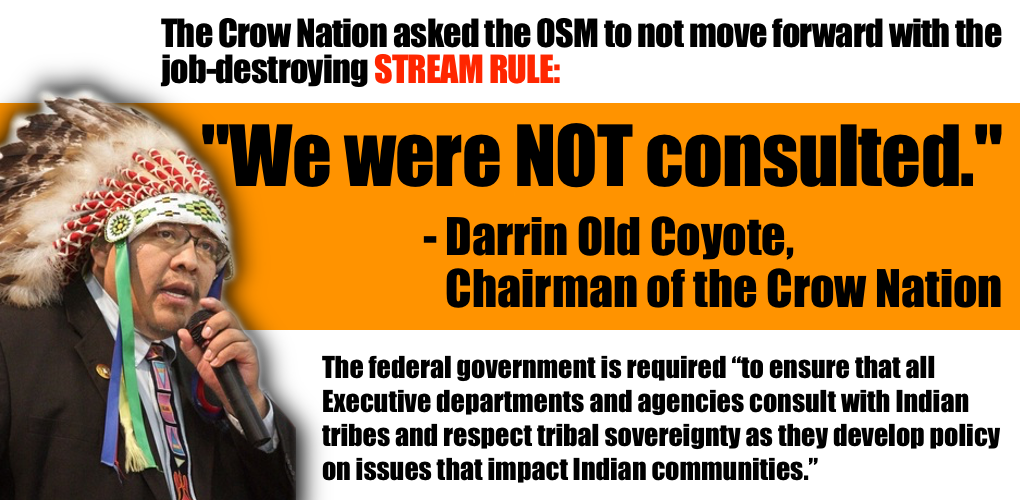
The Interior Department’s Stream Rule – a Case Study in Failed Obligations
November 30, 2016
Even as the administration vows to push forward with its damaging stream rule – a rule that puts more than one third of coal-related jobs at risk – we continue to learn about more groups that were shut out of the rulemaking process.
In a letter sent to the Office of Surface Mining Reclamation and Enforcement (OSMRE) earlier this month, the Crow Nation asked the government not to move forward with the stream rule.
Why? The stream rule seems to be yet another case of regulatory zeal outpacing the rules and facts.
Set aside that the proposed rule provides no discernable environmental benefits beyond duplicating extensive state and federal protections that exist. Never mind that this kind of duplication is prohibited under the Surface Mining Control and Reclamation Act. And forget that its only real value seems to be its ability to appease keep-it-in-the-ground activists.
In this case, the federal government is required “to ensure that all Executive departments and agencies consult with Indian tribes and respect tribal sovereignty as they develop policy on issues that impact Indian communities.”
What happened? “We weren’t consulted.” So says Darrin Old Coyote, chairman of the Crow Nation, according to news reports issued last week.
The federal government has an obligation for government-to-government consultation, yet it failed in its commitment to the Crow Nation. What outreach was made was too little, way too late.
The Crow Nation now joins others that were shut out of the rulemaking process, including 19 states that have urged OSMRE to comply with congressional mandates and engage properly.
If the administration moves forward with the rule, it would be particularly perplexing given its decision to extend the consultation period for the Standing Rock Sioux over its concerns for the impacts that the North Dakota Access Pipeline may have on tribal lands.
With a flawed process that excluded key parties from the decision making, a rule that duplicates existing regulations, and half of the U.S. coal reserves potentially off limits to mining as a result, the stream rule is a prime example of rulemaking at its worst.
- On November 30, 2016
